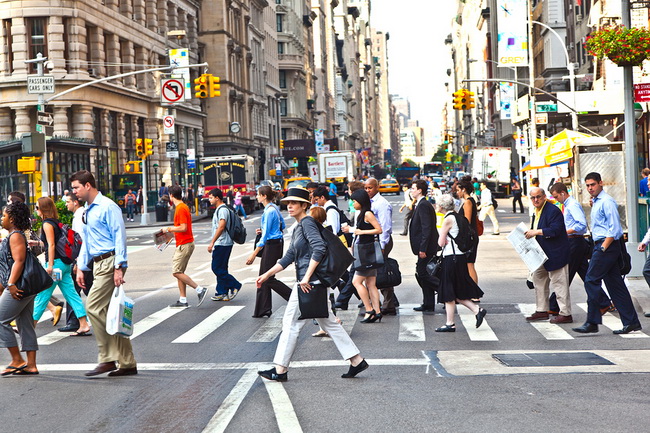- Make It Yourself Lavender Heart-Shaped Bath Bombs!
- 20 Things You Never Knew About “Down There”
- 12 Best Foods For Those Suffering From Arthritis Pain
- 12 Personal Hygiene Mistakes Almost Everyone Makes (Mom Never Told You About #4!)
- 15 Medicinal Plants And Herbs From The Cherokee People
- 12 Mind-Blowing Benefits Of Drinking Coconut Water During Pregnancy
- 12 Outstanding Winter Foods That Won’t Fatten You Up Like A Christmas Turkey
Is Living In The City Making You Crazy?

Photo credit: bigstock.com
Currently, a little over half the world’s population lives in urban environments. By the mid-twenty-first century, that number is projected to be over 60 percent. Much of this population growth and concentration will occur in the already-densely populated “megacities” of Asia and various regions of the developing world. As people migrate to cities in search of job opportunities, it raises some important questions about the effects this will have on their health.
Everyone knows that there’s more air pollution in cities, which can have a negative effect on people’s physical health. But how does city life affect people’s mental health? Studies appear to indicate that urban living can increase the likelihood of certain types of mental illness.
Urban Living vs. Evolution
Homo sapiens (humans) evolved into their modern form somewhere around 200,000 years ago, and for most the time since then, we’ve lived as nomadic hunter-gatherers. Most humans spent their waking hours outdoors in nature. Around the end of the last Ice Age, approximately 10,000 years ago, humans began living in permanent settlements, and over time, camps became towns, and towns became cities. In evolutionary terms, 10,000 years is barely the blink of an eye. Humans living in urban environments today aren’t that different physiologically or mentally from people living in prehistoric times.
Since the Industrial Revolution in the 1800s, cities have grown at enormous rate, and urban environments have become much more dense, loud, and polluted. What effect does this have on people who have evolved to live out in nature?
Continue to Page 2
































